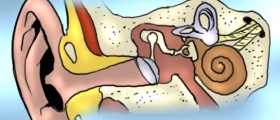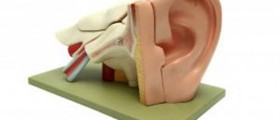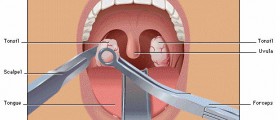
Traveling in an airplane comes with several possible health issues, all of them generally mild. Ear problems are quite a common issue that occurs while flying, and it is also known by the term “airplane ear”.
The “airplane ear” is characterized by pain in the ear, which usually starts when the airplane descends to land and gets worse the lower the plane gets. This pain occurs because of difference in pressure in the middle air and in the air outside the ear.
What causes earache while flying?
The middle ear is a small space behind the eardrum, filled with air and connected with the nose through Eustachian tube. The pressure of the air inside and outside the ear is supposed to be the same. However, as an airplane begins to descend, the cabin pressure rises while the pressure inside the middle ear remains the same. The outside pressure pushes the eardrum inwards, causing pain. The pressure in the middle air needs to increase too, and quickly, using the air traveling up the Eustachian tube to equalize the pressure.
The Eustachian tube is normally closed but it sometimes opens, for example when swallowing, yawning or chewing. For many people, problems with the ear that occur when flying can be solved quickly and easily simply by doing one of those actions, for example yawning. Also, many airliners offer candy or snacks to the passengers exactly for that reason.
However, in some people the Eustachian tube does not open so easily and the air pressure is hard to equalize. This can be due to narrow structure of the tube, or because something is blocking it. The blockage may be an effect of an infection, such as common cold or sore throat, or it can occur due to allergies. Basically anything that causes extra mucus in the back of the nose can cause problems with Eustachian tube.
How to prevent ear problems when flying?
Ideally, people with allergy bouts, cold or flu should not fly for many reasons, ear problems being just one of them. However, it is not likely that a person will change plans because of a cold, so it is recommended to use antihistamines, Throat lozenges, nasal sprays and similar remedies to improve the condition of the nose.
Healthy people can prevent ear problems when flying by chewing on something or sucking on a hard candy as soon as the plane starts descending to land. It also helps to yawn. A trick called Valsalva maneuver can also help a lot. It is done by breathing in, keeping the mouth closed and pinching the nose, and then making as if breathing out, but with no air coming out. By doing so, the air will be pushed into the middle ear to equalize the pressure, and the person may even feel a “pop” in the ears.

















Your thoughts on this
Loading...